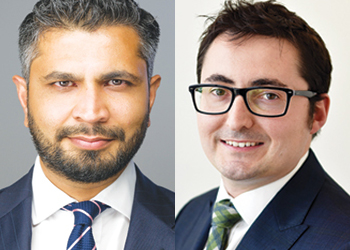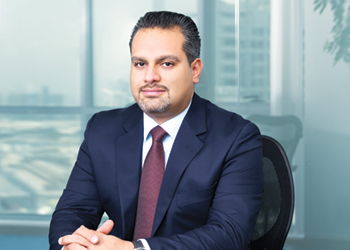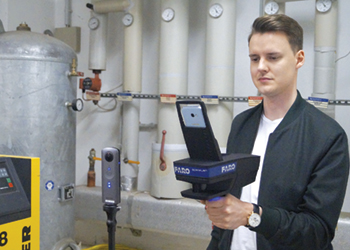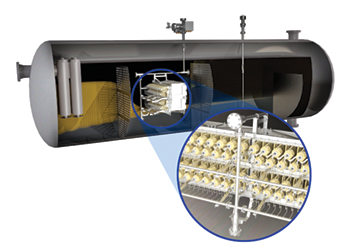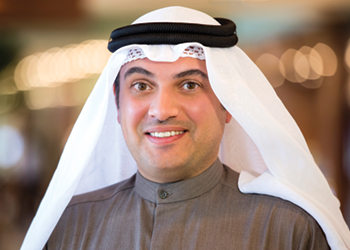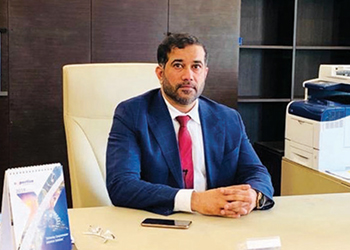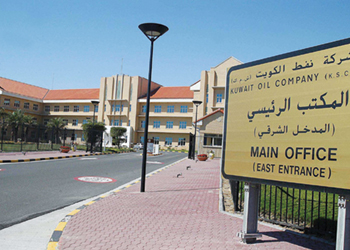
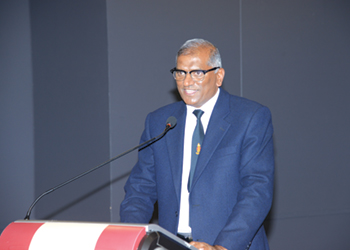 Dr Palliam ... focus on excellence
Dr Palliam ... focus on excellence
Being a Business and Economics College within the liberal arts university provides a tremendous opportunity for students to engage in creativity and critical thinking to embrace career demands and mitigate against risks in a transforming world
Businesses in Kuwait and the Gulf are required to think beyond the status quo to consider solutions for business problems and create value for their respective organisations, notes Dr Ralph Palliam, D Com (Pretoria), Dean, College of Business & Economics (CBE), American University of Kuwait (AUK).
This needs employing graduates who are able to engage in important ethical, social, and environmental concerns and develop human resource skills besides thriving in their chosen careers; and that is where the College of Business & Economics at AUK steps in, delivering brilliant graduates year after year through its holistic educational programmes.
Being a Business and Economics College within the liberal arts university provides a tremendous opportunity for students to engage in creativity and critical thinking to embrace career demands and mitigate against risks in a transforming world, explains Dr Palliam.
"In bringing out the best in every student, by addressing social, emotional and academic aspects, our business students become more than the degree certificate they have been awarded. Our students qualify to be leaders with ethical and moral depth and intellectual intensity. The success of our graduates owes much to the faculty, staff, and community of professionals who support and promote the advancement of knowledge both locally and globally."
Supported by an engaging group of business leaders and an enthusiastic convocation of alumni and students, the College is focused on becoming Kuwait’s centre for next generation thinking, strategic problem-solving and business intelligence. "Our faculty promote quality teaching and learning practices that maximise the educational potential of our students. By engaging in extracurricular activities, students are provided with social and leadership opportunities and are encouraged to deal effectively with people, and to learn and practice organisational and management skills," he says.
AUK began offering business courses from its founding and was housed in a Division of Business and Economics within the College of Arts and Sciences. In 2011, AUK formally established the College of Business and Economics (CBE) as the second College within the University, he points out. CBE offers BBA degree programmes in Accounting, Economics, Human Resource Management, Finance, Management, and Marketing. Each degree programme provides students with a broad exposure to multiple disciplines that equip them in developing skills fit for professionals of today’s global market demands. Dr Palliam says CBE has a clear and distinctive mission. It focuses on achievement, inculcating positive behaviours and developing a sense of belonging in students. The use of outside speakers in classes by many instructors, high profile speaker series sponsored by the College’s Advisory Board and the University, and participation in many competitions have created visibility for its students.
The newly set-up behavioural insights unit Kuwait Policy Appraisal Lab (KPAL) under the Kuwait Public Policy Center (KPPC) at the General Secretariat of the Supreme Council for Planning and Development (GSSCPD), the United Nations Development Program (UNDP) in Kuwait and CBE at AUK jointly offered a new university course, BUS 489, that focused on behavioural economics, public policy, and nudge for sustainability.
The course, a recent innovation in the Middle East, is designed as a joint offering between the national Nudge Unit and the University. It provided a platform for students to learn about behavioural economic concepts, and run experiments related to challenges that have behavioural roots and that are at the heart of KNDP 2035, with a focus on the energy and environment pillar.
Dr Palliam says that a relatively large percentage of CBE’s graduates are able to find ready employment.
Over the last 15 years, the Office of Alumni Affairs and Career Development at AUK has hosted annual career fairs. It offers students and graduates a chance to meet face-to-face with representatives from companies and to make a great first impression.
CBE’s graduating seniors are advised to make the most of these fairs and are prepared for interviews through the Office of Alumni Affairs and Career Development. What is most unique about the career fair is that the employer representatives, in many cases, are AUK graduates themselves and are enthusiastic to recruit from their alma mater.
AUK places high priority on career advancement development. The mandatory internship programme of the College provides students the opportunity to engage with the real world and discover what it needs to be successful.
The formal agreements that CBE and AUK have with potential employers and organisations often provide powerful motivation for students to hold themselves to higher account and act as stronger leaders. For instance, AUK and Lothan Youth Achievement Center (LOYAC) have signed a Memorandum of Understanding (MoU) to enhance and benefit student participation in personal and professional development programmes. The MoU will enable students to pursue internships, attend workshops and seminars, volunteer, and support various community outreach programmes. Based on the agreement, AUK students can start exploring opportunities with LOYAC. By establishing MoUs of this calibre, AUK students are exposed to a wide spectrum of experiences and training that will prepare them for their chosen professional careers and personal development, in addition to making them valuable candidates for potential employers, he contends.
Referring to the College’s accreditation offered to AUK students by the Accreditation Council for Business Schools & Programs (ACBSP), since accreditation institutions foster engagement, innovation and impact in business education through rigorous processes that review the teaching, research, and curricula development the college offers, carrying the accreditation seal is a recognition that employers and other educational institutions value.
Accredited schools are known to employ exceptional faculty members committed to the scholarship of teaching, research, and service. "The infinite value of accreditation is that it accords us the opportunity to judge our educational quality and how well the College serves students and society," he adds.




















































































